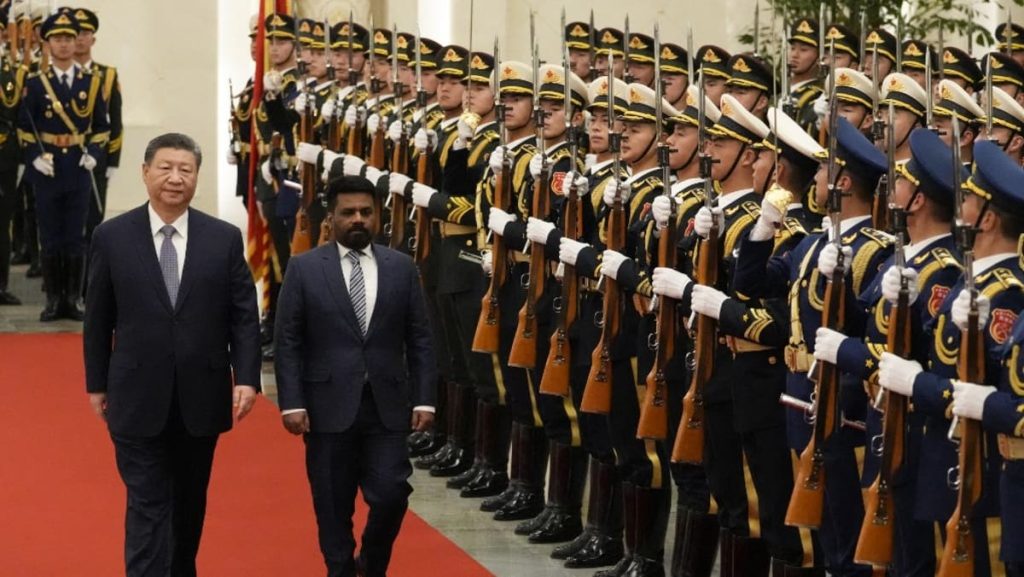Sri Lanka’s economic landscape has been significantly reshaped by a landmark agreement with Chinese state-owned energy giant, Sinopec. This deal, solidified during President Ranil Wickremesinghe’s four-day state visit to China in January 2024, represents the largest foreign direct investment in Sri Lanka’s history, totaling a substantial $3.7 billion. The centerpiece of this investment is the construction of a cutting-edge oil refinery in the southern Hambantota region, a project projected to dramatically boost the nation’s refining capacity and contribute significantly to its foreign exchange earnings through exports. This influx of capital comes at a crucial juncture for Sri Lanka, which is striving to recover from a debilitating economic crisis that saw the nation default on its foreign debt in 2022.
The new refinery, with a planned capacity of 200,000 barrels per day, represents a major leap forward for Sri Lanka’s energy sector. It is expected to not only enhance the country’s domestic fuel security but also generate substantial revenue through exports, thereby strengthening the nation’s foreign exchange reserves. This increased capacity will reduce Sri Lanka’s reliance on imported refined petroleum products, leading to greater energy independence and price stability in the domestic market. Furthermore, the project is anticipated to create numerous job opportunities, both directly and indirectly, stimulating economic activity in the Hambantota region and beyond. The influx of skilled labor and related industries is expected to further boost the local economy.
The investment’s location in Hambantota carries significant geopolitical and economic weight. The region is already home to a strategically important port, leased to a Chinese company in 2017 under a 99-year agreement. This earlier deal, driven by Sri Lanka’s inability to repay a substantial Chinese loan, sparked controversy and raised concerns about China’s growing influence in the country. The new refinery project further cements China’s presence in this region, raising questions about the long-term implications for Sri Lanka’s sovereignty and economic independence. However, the Sri Lankan government views the investment as a crucial step towards economic recovery and development, emphasizing the potential for job creation and increased revenue generation.
The Sinopec deal offers a potential lifeline to Sri Lanka’s struggling economy. The 2022 economic crisis plunged the nation into unprecedented hardship, characterized by severe shortages of essential goods, including food, fuel, and medicine. This crisis, fueled by a combination of factors, including the COVID-19 pandemic, global economic downturns, and unsustainable debt levels, exposed deep vulnerabilities in Sri Lanka’s economic structure. The substantial investment from Sinopec is seen as a crucial step towards stabilizing the economy, generating much-needed foreign exchange, and creating employment opportunities. It provides a much-needed injection of capital into the country’s infrastructure and energy sector, paving the way for future growth and development.
However, this significant investment also raises concerns about Sri Lanka’s growing dependence on China. The Hambantota port deal, which saw the strategic asset leased to a Chinese company for nearly a century, has already raised eyebrows about China’s growing influence in the region. The new refinery project further strengthens this relationship, potentially exacerbating concerns about Sri Lanka’s vulnerability to Chinese economic and political pressure. Critics argue that this growing dependence could compromise Sri Lanka’s strategic autonomy and limit its ability to pursue independent foreign and economic policies. The government, however, maintains that the investment is purely economic and serves the best interests of the Sri Lankan people.
Ultimately, the Sinopec deal presents both opportunities and challenges for Sri Lanka. While the investment offers a potential path to economic recovery and development, it also raises concerns about the country’s growing reliance on China. The success of this venture will depend on Sri Lanka’s ability to leverage the investment for sustainable economic growth while carefully managing the geopolitical implications of its deepening relationship with China. The government’s ability to ensure transparency, accountability, and equitable distribution of benefits will be crucial in determining whether this historic investment truly serves the long-term interests of the Sri Lankan people.

